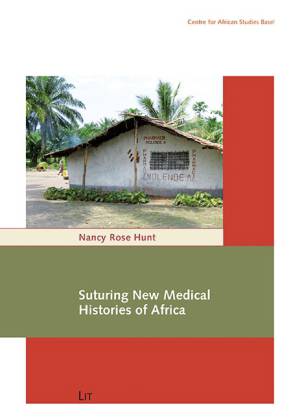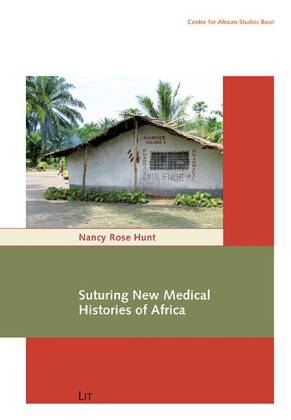
Door een staking bij bpost kan je online bestelling op dit moment iets langer onderweg zijn dan voorzien. Dringend iets nodig? Onze winkels ontvangen jou met open armen!
- Afhalen na 1 uur in een winkel met voorraad
- Gratis thuislevering in België vanaf € 30
- Ruim aanbod met 7 miljoen producten
Door een staking bij bpost kan je online bestelling op dit moment iets langer onderweg zijn dan voorzien. Dringend iets nodig? Onze winkels ontvangen jou met open armen!
- Afhalen na 1 uur in een winkel met voorraad
- Gratis thuislevering in België vanaf € 30
- Ruim aanbod met 7 miljoen producten
Zoeken
Omschrijving
'Suturing' suggests closing a wound, making an incision, editing a film, or stitching together parts, locations, and points of view. The word is a helpful one for today's historians of disease, suffering, and medical practice in Africa. Whether focusing on a hospital or shrine, on malaria, trauma, witchcraft, or nursing, historians are grappling in new ways with the problems of joining locations and viewpoints, of tethering pasts with the present. New challenges arise when thinking about Africa's place in today's world of global health and biosecurity, war zones and heritage monies, emerging medical markets and self-treatment devices. Suturing points to new kinds of creativity with sources, evidence, and interactivity. As new digital capacities transform how history is engaged and produced, the word suturing helps to draw attention to the question of audiences and publics for African medical histories in the 21st century, as demonstrated in this book. (Series: Carl Schlettwein Lectures - Vol. 7)
Specificaties
Betrokkenen
- Auteur(s):
- Uitgeverij:
Inhoud
- Aantal bladzijden:
- 48
- Taal:
- Engels
- Reeks:
- Reeksnummer:
- nr. 7
Eigenschappen
- Productcode (EAN):
- 9783643903655
- Verschijningsdatum:
- 20/06/2013
- Uitvoering:
- Paperback
- Formaat:
- Trade paperback (VS)
- Afmetingen:
- 159 mm x 229 mm
- Gewicht:
- 77 g

Alleen bij Standaard Boekhandel
+ 39 punten op je klantenkaart van Standaard Boekhandel
Beoordelingen
We publiceren alleen reviews die voldoen aan de voorwaarden voor reviews. Bekijk onze voorwaarden voor reviews.











